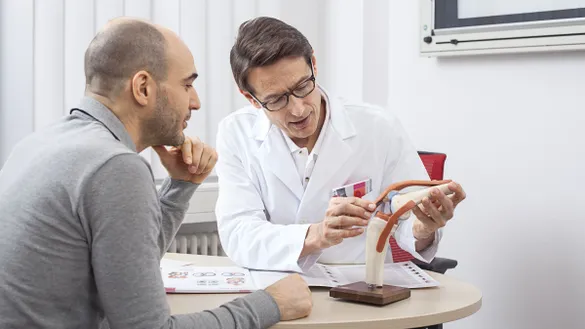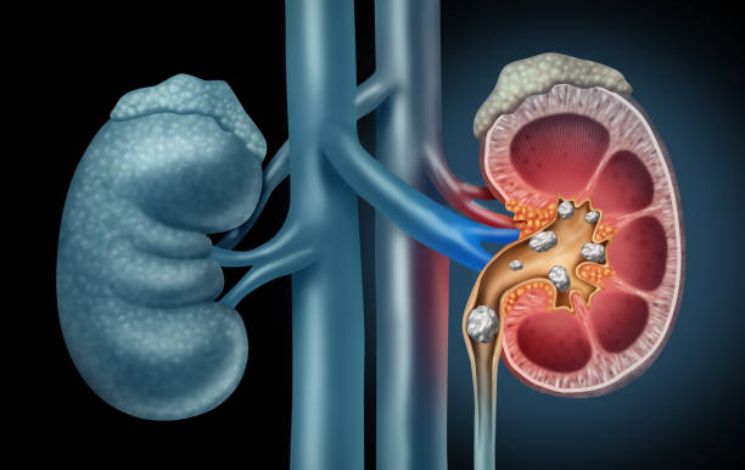How are Kidney Stones formed?
Kidney stones are formed when certain substances in the urine become highly concentrated and crystallize, creating solid particles that can stick together and grow in size. The process of kidney stone formation involves a combination of factors related to urine composition, fluid intake, and other factors.
How to prevent kidney stone ?
- Staying hydrated by drinking enough water is crucial to prevent stone formation.
- Dietary changes, like reducing salt intake, moderating consumption of oxalate-rich foods (spinach, beets, nuts), and maintaining a balanced diet.
- Medications or medical management may be recommended for those with a history of recurrent stones.
Causes
- Low fluid intake (Dehydration)
- Consuming high calcium supplements
- High animal protein diet
- Excess salt consumption
- Family history
- Chronic diarrhea
Symptoms
- Severe back pain in the flank area
- Nausea and vomiting
- Pain while urinating
- Foul-smelling urine
- Fevers and chills
- Blood in urine
Diagnosis
There is as such no particular method for self-diagnosis of kidney stones by the patient. However, if the individual experiences several signs and symptoms such as immense pain in the side or back, fever, chills, nausea, etc.,
they should immediately consult a medical professional for the treatment

Doctors

Laparoscopic , GI & Colorectal
Dr. Ankur Patel

Homoeopathy
Dr. Pranav patel
Treatment
minimally invasive techniques such as shock wave lithotripsy (SWL), ureteroscopy (URS), and percutaneous nephrolithotomy (PNL).
Other, less commonly performed, procedures include laparoscopic, robot-assisted, and open surgery.
FAQs
Do kidney stones always require surgery?
No, kidney stones always require surgery. Stones less than 4mm in size may be flushed out by drinking excess water or prescribing medication from the doctor. In any case, consult your doctor
What is the fastest way to get rid of kidney stone
Surgery is the fastest and the most efficient way to get rid of kidney stones pain. Medications can flush out stones smaller than 4mm, but for stones larger than 4mm to 5 mm, surgery is the best


